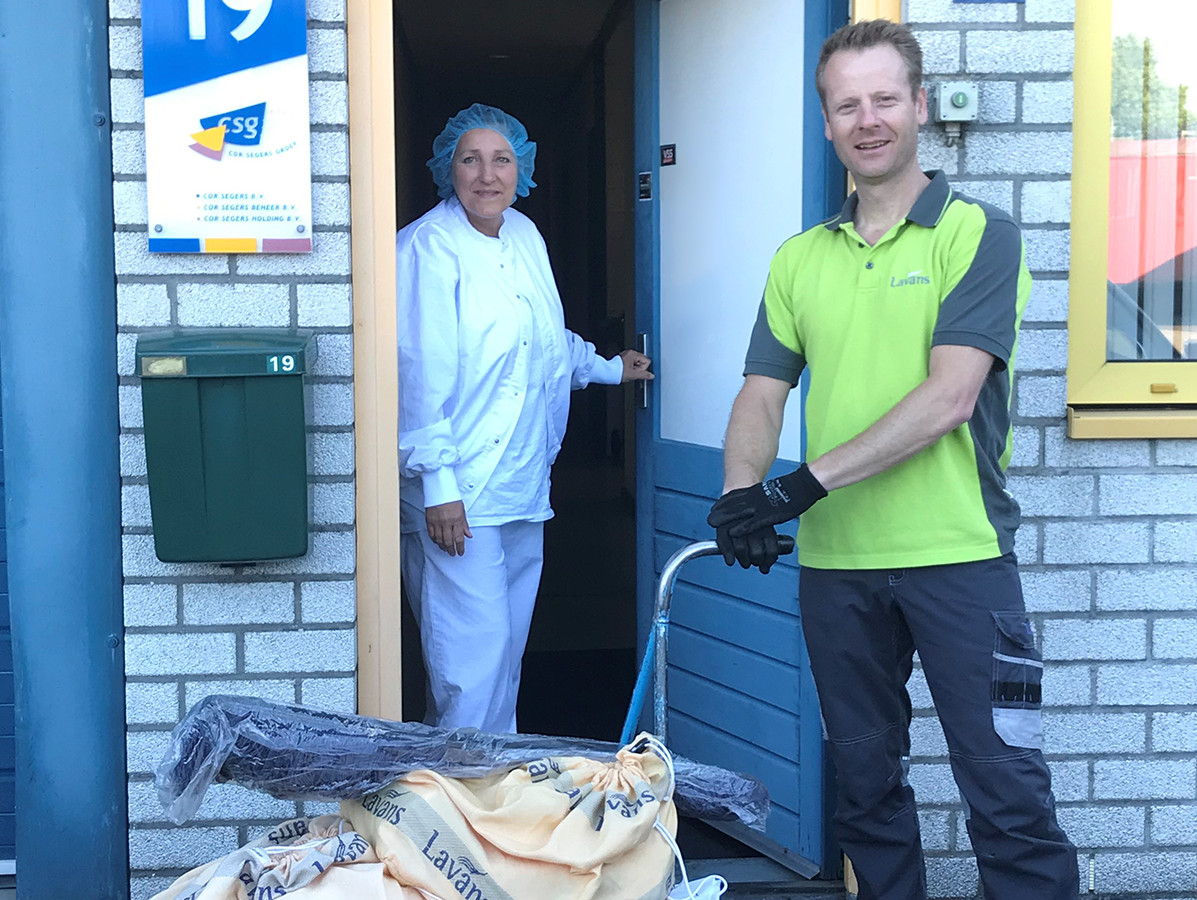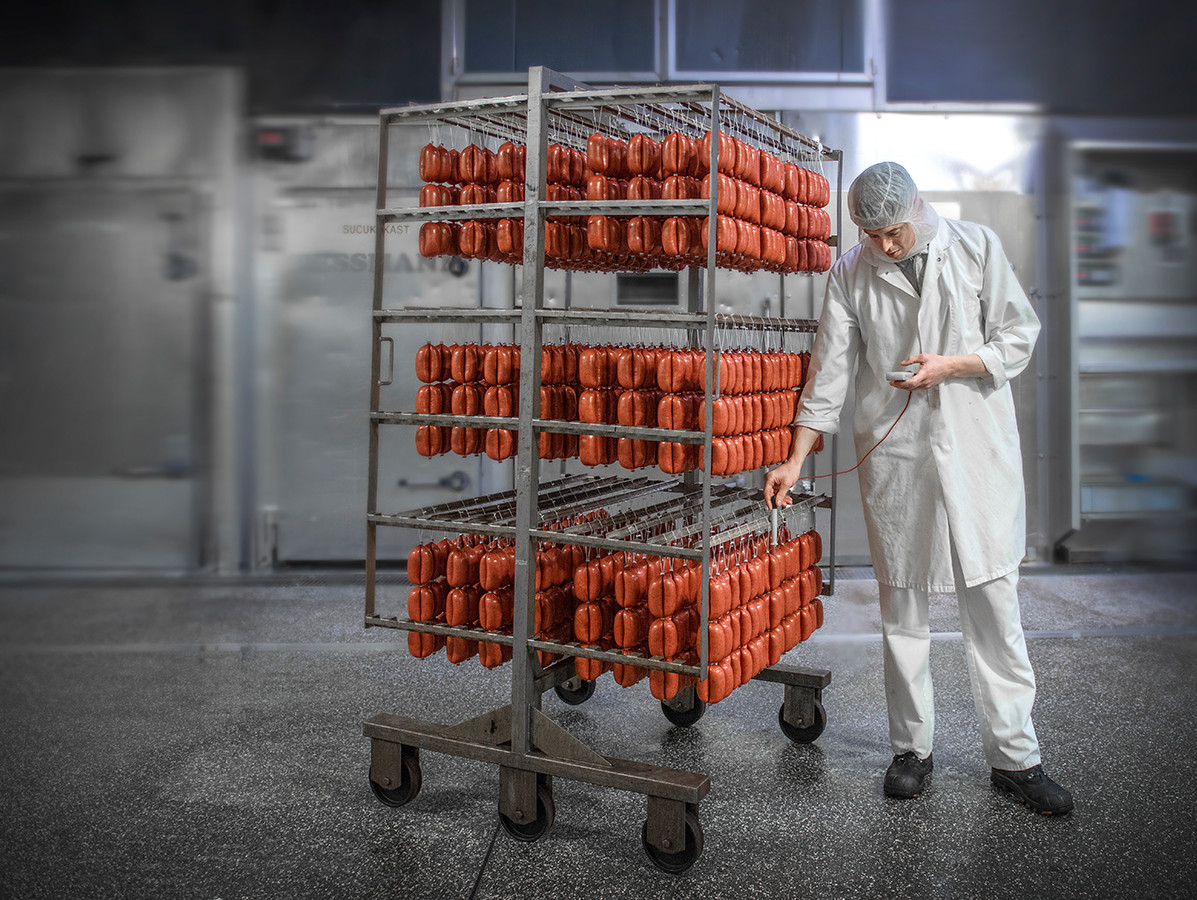
The food industry cannot escape the impact of corona either. Ensuring a food-safe production process and the health of employees is of crucial importance. At Cor Segers BV and Simons Vleeswaren they took the necessary measures. "Maybe the dividers between the employees will remain."
Cor Segers BV is big in breeding, packaging and transport of cheese. The base of the company is in De Mortel in Brabant. Four warehouses are located in the region: in Deurne, Geldrop, Gemert and Beek en Donk. This puts Cor Segers in the centre of one of the corona hot spots. QA Manager Sabine Pennings realises this: "Right after carnival, corona emerged. We noticed that more people were ill. We immediately went to find out what we had to do, how we could fit the additional government measures into our production sites. One of the first things we did was give everyone a fixed location. Normally we strive for all-round employees, who can work at any location. That was no longer possible. This meant that we became a little less flexible.
Cor Segers also took measures in the field of hygiene."Washing and disinfecting hands was already mandatory with us. And disposable gloves are also standard here. We did have a challenge on our packaging line. We still do a lot of manual work there and it was sometimes difficult to keep a distance of one and a half metres. We placed mobile dividers there and, where possible, moved our employees a little further apart. Now it turns out that no one is bothered by these dividers. So maybe they will stay." More attention was also paid to the design of processes. For example, breaks are taken in smaller groups.
One of the measures Cor Segers took was to reduce the number of external suppliers on the work floor as much as possible. This also had consequences for Lavans, the party responsible for Cor Segers' work clothing. Pennings: "They offered service right up to the cupboard. We temporarily stopped doing that. We know when Lavans will arrive at which location, we now place the dirty laundry at the front door ourselves and store the clean clothes. We've been very flexible in our approach, although to be honest, we do miss that service. We'd like to have it back. In summary, Pennings argues that the company in Brabant does not really suffer much from the stricter measures. "And so we're not going to change the measures yet."

Chris Horst of Simons Vleeswaren: "The bar was always high in terms of hygiene rules here"
Simons Vleeswaren, with two locations in Roermond, Limburg, also acted instantaneously. "We did end up in a bit of a dilemma," says Chris Horst, Operational Manager. "On the one hand we wanted to guarantee the continuity of our process, on the other hand we had to deal with increased demand. We quickly noticed that it was an advantage that the standards of hygiene were already high here. We put people first in the process. For example, anyone who was not feeling fit or had a fever was asked to stay at home. In addition, we spread out the teams a bit. Not everyone started at the same time anymore. Breaks were also taken by smaller groups at the same time". The RIVM rules were strictly adhered to. "Tables further apart, one and a half meters away, we started drawing stripes. We already had a lot of disinfection material and, for example, a hygiene lock to the work floor. Actually, it all went fairly quickly and smoothly. We always communicated everything openly and clearly".
The starting point for Simons Vleeswaren was: take corona seriously! That's why we chose not to work with our own protective equipment, but to offer it collectively. "We bought headgear with fixed mouth caps and also extra protection for under the hat", Horst explains. "Our people already had gloves. They were often already worn as soon as we entered the building. It was reassuring to see that a lot had already been secured. As far as work clothing is concerned, it was suggested to service provider Lavans to scale up. Horst: "Supplying from four to five times a week. That was handled quickly and professionally. So our people can change their clothes every break. Fortunately, we were also well stocked."
For the time being, Roermond does not think about loosening up. "Let's keep it that way for now. Then we will be less vulnerable," says Horst. "The importance of continuity is great. We take a very critical look at our processes and therefore we can continue to safeguard it. We all continue to work hard, but safely and hygienically".
Source: © Lavans